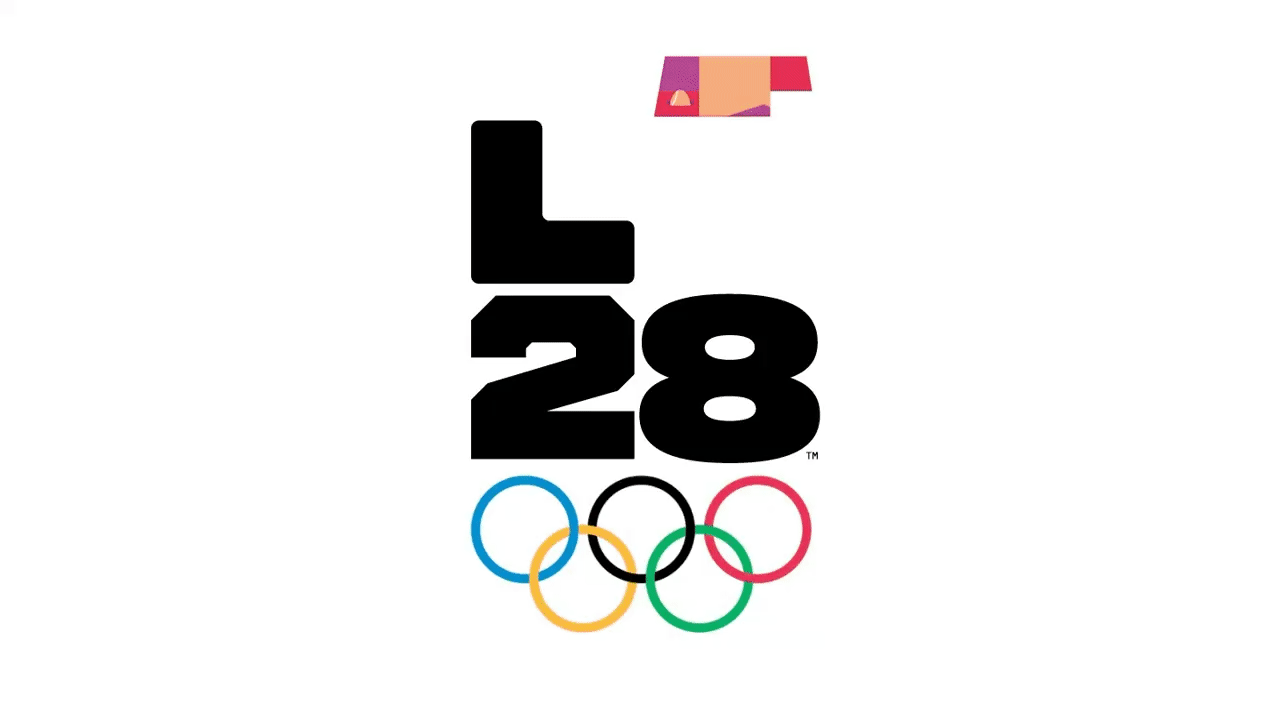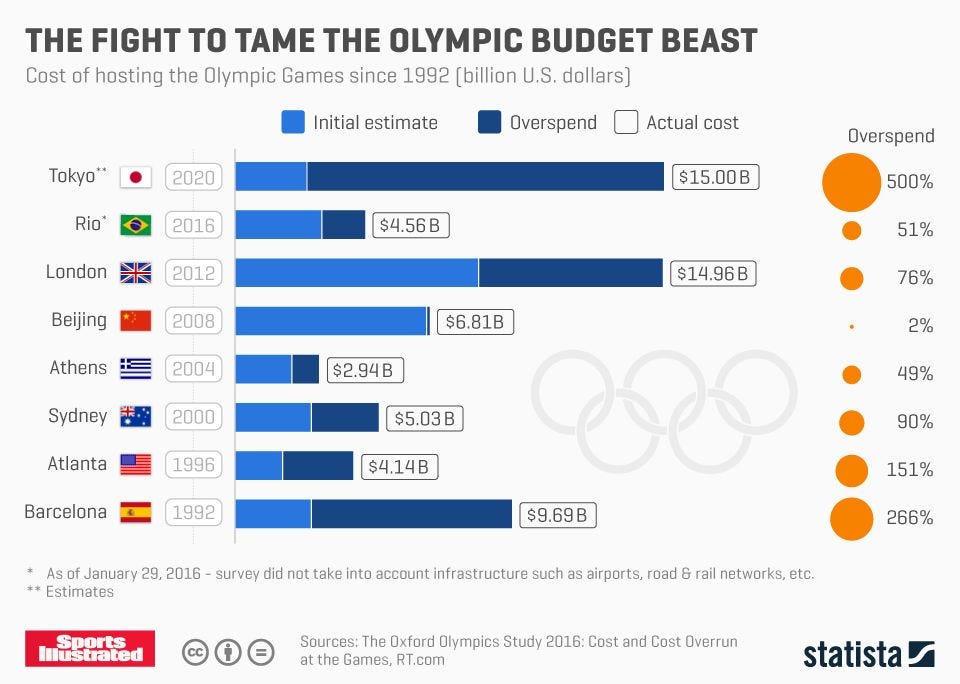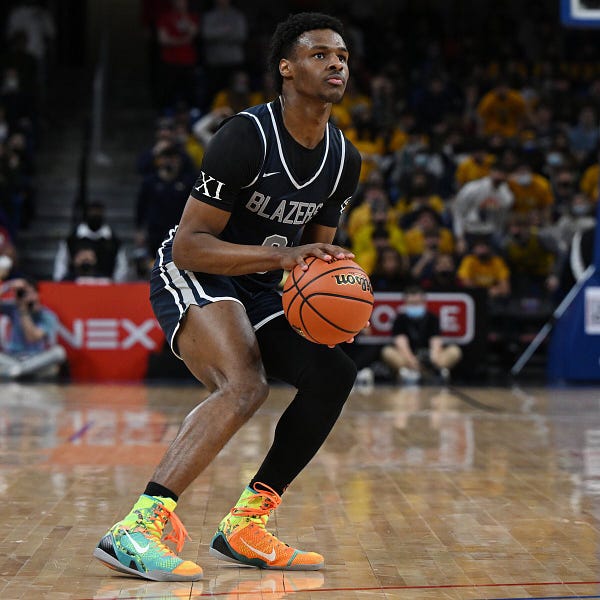How Delta Airlines Could Save the Olympics 🛫 🏟
Plus why is Mbappé Unhappé? and the funniest reactions to the Red Bull cost cap controversy.
Welcome to Athletic Interest.
Our main story this week has caused controversy across the sporting world, with people reacting to the news with tweets like this:
and this:
No, we are not talking about Mbappé’s decision to start a war of words with PSG - although we will touch on that later in this newsletter - we are of course referring to the fact that Delta Airlines branding has been added to the logo of the 2028 Los Angeles Olympics.

We should point out that this is a special logo designed for Delta to use in their own marketing and is not the official logo of the games which will remain without corporate sponsorship.
Regardless, this is still a huge moment in the history of the Olympics. Host cities are usually scared to over-commercialise the games and treat their logos as sacrosanct…until now!


It’s actually quite ironic that LA28 would allow their logo to be used as a tool for corporate sponsorship when the International Olympic Committee - the body that oversees all Olympic games - has repeatedly taken legal action against anyone that dares to use the famous Olympic rings for advertising. This includes a small English Butcher who dared to try and sell a sausage in the shape of the Olympic rings.
While Olympic traditionalists, and perhaps the IOC, will be appalled to see sponsorship taking over yet another key aspect of their precious games, we don’t think this is a bad thing.
In fact, it might be essential to the survival of the Olympics.
To explain, we need to take you on a quick history lesson.
In the late 70s, the Olympics was having an image problem.
The 68 and 72 games were marred by outbreaks of violence while the 76 edition in Montreal was such a financial disaster that the local government took until 2006 to pay off the debt.
When it came time to decide on a host city for the 1984 Games, the only city other than Los Angeles to put forward a credible bid was Tehran, the capital of Iran.
Los Angeles eventually won by default when Tehran withdrew its bid.
Not that the LA residents were overly impressed. In fact, LA voters quickly passed a bill prohibiting government money from being used to fund the 1984 Olympics.
This left the organisers with a huge hole to fill, and it’s not as if they could try and convince private investors to take a chunk of the burden…everyone knew the Olympics lost money.
What the organisers did next completely transformed the Olympic movement forever and probably saved it from eventual extinction.
Desperate for some cash, the organisers decided to invite companies to become official sponsors of the games. This was unheard of at the time. Companies didn’t traditionally see an event like the Olympics as a place for successful advertising, preferring to use traditional outlets like TV, radio, and print as a way of reaching their customers.
So, the LA84 team came up with an innovative solution. They created a limited number of slots for advertisers in a golden circle known as the ‘official partners.’
Everything from burgers to gasoline was given a slot as an ‘official partner.’
The secret was that there could be only one sponsor from each product category. This created scarcity and started a bidding war between the brands.
This coincided with a time when brands realised that association with intangible feelings like success or power could elevate how the consumer saw that brand. What better way to transform Snickers from an indulgence to a regular snack than association with the Olympics?
This was a small change, but it worked magnificently.
The LA Games of 1984 generated around $400 million from TV and sponsorship deals alone and the organisers ended up with a whopping $232 million in profits. To this day, this is still one of the most profitable sporting events in history.
Los Angeles’s incredible turnaround, without government help, sparked new interest from around the globe for hosting an Olympic games and every single games since have adopted the idea of paying a large part of the expenses through corporate sponsorship.
Even the most hardline Olympic traditionalist has accepted that sponsorship is what allows their beloved games to continue, but times have changed since 1984 and it looks like the Olympic movement is facing a repeat of the late 70s.
Most of the recent Olympic games have gone dramatically over budget. London 2012 budgeted a total spend of $5 billion and ended up spending $15 billion.
Couple this with countless stories about Olympic infrastructure going to ruin, and many host cities are reconsidering whether it is actually beneficial to host the Olympics.
The IOC must be getting de-ja vu.
Luckily, they yet again have Los Angeles on their side.
Thanks to its success in 84, Los Angeles has become a symbol for economic transformation at the Olympics and it’s, therefore, no surprise that the organisers of the LA28 games are following the lead of their predecessors and trialing new ways to increase sponsorship revenues.
Adding some corporate sponsorship to the logo may seem small, but then again, so was adding an official burger in 84. What this move does really, is signify how Los Angeles is willing to break the mould in order to maximise revenues and increase the attractiveness of hosting an Olympic games.
Things seem to be heading in the right direction. Some experts predict that the LA28 games will see over $4 billion in sponsorship revenues, easily smashing the current record of $3 billion for Tokyo.
With that sort of money coming in, which city wouldn’t want to host an Olympic games?
Anyone that is still offended by the idea of Delta appearing in the Olympic logo needs to ask themselves where the Olympics would currently be without the controversial actions taken by the organisers of the LA games in 84.
With the Olympics yet again looking to be seen as a more attractive event for host cities, we might one day look back on the actions of the LA28 organisers as saving the future of the games for a second time.
🍎 Sports Business Bites
🇫🇷 Kylian Mbappé has shocked the footballing world for the second time in six months.
First, he decided to reject a huge offer from Real Madrid, which everyone believed was almost finalised, to stay at PSG.
And now, just months after signing this new contract in Paris, he has reportedly decided that he wants to leave PSG immediately.
So, why is Mbappé unhappé?
Well, there are three reasons:
PSG has failed to sign big-name players for Mbappé to play alongside.
He wants to play in his preferred position (left wing) but is being played in the center.
He doesn’t feel like he is being treated as the heart of the PSG project.
Interestingly, the last two reasons for Mbappé’s frustration appear to center on one player…Neymar.
For Mbappé to play in his natural left role, Neymar would be without a position. No manager wants to leave Neymar on the bench or play him in a weaker position so Mbappé, who is also competent playing in the center, is pushed up front. This is probably in turn contributing to his feeling that he is not being given priority over other players in the project (specifically Neymar.)
It remains to be seen whether PSG and Mbappé will be able to overcome their differences. But even if relations remain frosty, Mbappé has just signed a new contract, nothing can force PSG to sell. There are even reports that the club would only accept a ridiculous offer in hundreds of millions to part with the star Frenchman.
This could be a long few years for Mbappé.
🏀 Nike has just signed Lebron James’s son Bronny to a lucrative sponsorship contract.
Lebron James jr, known professionally as Bronny, currently plays high school basketball and is looking to emulate his father both off and on the court. Nike clearly sees a bright future for the 18-year-old prodigy and has snapped up his signature ahead of the other top brands.
It is not entirely clear how much Bronny will make from Nike, but he was reportedly earning as much as $5 million a year from sponsorship before Nike came along, with his current figure likely to be far higher.
While he has a way to go to match his father’s $1 billion lifetime deal with the swoosh, this deal still holds some significance.
Before 2021, college athletes in the US were effectively barred from earning any money. Then the Supreme Court ruled that these young athletes were allowed to receive money from brands to use their name, image, or likeness, thus opening the door for deals like the one signed between Bronny and Nike.
🍔 We end today’s newsletter with some funny reactions to Red Bull breaching the cost cap.
For those of you who missed the news, Red Bull was found guilty of a minor breach of the 2021 cost cap which limited team spending to less than $145 million per year.
A minor breach means anything from $1 up to $7 million (5%) over the cap limit. While the amount that Red Bull overspent is unknown, there is speculation that they went about $2 million over.
While some fans were left fuming that Red Bull would dare breach the limit, others found humour in reports that Red Bull was blaming the increased cost of food and drink for their non-compliance.
Then there is our personal favorite:
While we wait for the FIA to decide on a punishment for Red Bull (which is likely to consist of a fine and/or a reduced budget next season.) let’s all enjoy the fact that Red Bull stopped running an advert on social media that showed their team enjoying vast amounts of food in a restaurant!












